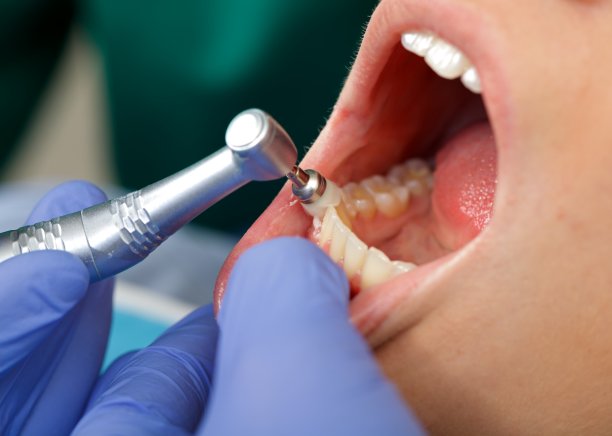Summary: Dental implant treatment has become a popular and effective solution for restoring smiles and improving oral health. This comprehensive guide covers the fundamental aspects of dental implants, including their types, benefits, the procedure involved, and aftercare recommendations. By understanding these key components, patients can make informed decisions about their dental health. The guide aims to demystify the process of dental implants and highlights their long-term advantages for maintaining a healthy, functional mouth and an appealing smile.
1. Types of Dental Implants Explained

Dental implants primarily come in two types: endosteal and subperiosteal. Endosteal implants are the most common, requiring a surgical procedure where titanium posts are inserted into the jawbone. These implants are suitable for most patients and provide a stable foundation for replacement teeth.
Subperiosteal implants, on the other hand, are used for patients who may not have sufficient jawbone height for endosteal implants. This type involves placing a metal frame on the jawbone beneath the gum tissue, allowing the posts to protrude, where artificial teeth can be mounted. Both types offer unique advantages based on individual dental needs.
Choosing the right type of implant often depends on factors like bone density, overall health, and personal preferences. Consulting with a dental professional will help determine the most suitable option for restoring your smile effectively.
2. Benefits of Dental Implants for Patients
The benefits of dental implants extend far beyond merely replacing missing teeth. One of the primary advantages is their ability to preserve jawbone integrity. When a tooth is lost, the jawbone can deteriorate over time due to lack of stimulation. Implants prevent this by acting as tooth roots, promoting healthy bone structure.
Additionally, dental implants improve overall oral functionality. They allow individuals to eat, speak, and smile confidently without worrying about dentures slipping or causing discomfort. This improved function can significantly enhance the quality of life and self-esteem for many individuals.
Another considerable benefit is the long-term durability of dental implants. With proper care and maintenance, they can last for decades, making them a worthwhile investment in long-term oral health. Moreover, since they are designed to fuse with the jawbone, they typically do not require any special cleaning practices beyond standard dental hygiene.
3. Understanding the Dental Implant Procedure
The dental implant procedure involves a few key steps that may vary depending on individual needs. The first step is a consultative examination, where dental professionals evaluate the patients oral health and determine an appropriate treatment plan. This often includes imaging tests such as X-rays to assess bone density and structure.
The next step is the surgical placement of the implant, which may require anesthesia for patient comfort. After the implant is placed into the jawbone, a healing period of several months is necessary for the bone to integrate with the implant, a process known as osseointegration.
Following healing, the next phase involves attaching an abutment, which serves as a connector for the artificial tooth. Finally, a custom-made dental crown is crafted and fixed onto the abutment, completing the restoration process. The entire journey can take several months but leads to exceptional results in terms of appearance and functionality.
4. Post-Procedure Care and Maintenance
Maintaining dental implants requires diligent post-procedure care to ensure their longevity. After the implant surgery, patients should follow their dentists advice regarding diet and activity restrictions to facilitate proper healing. Avoiding hard or sticky foods during the initial recovery period is crucial.
Once the recovery is complete, regular oral hygiene practices must be adhered to, including brushing, flossing, and routine dental check-ups. Just like natural teeth, dental implants require consistent care to prevent complications such as peri-implantitis, an inflammatory condition affecting the implant and surrounding tissues.
In addition, lifestyle factors such as avoiding tobacco use and limiting alcohol consumption can significantly enhance the success rate of implants. By committing to good oral hygiene and regular dental visits, patients can enjoy the full benefits of their dental implants for years to come.
Summary:
Dental implants offer an effective solution for restoring smiles and providing significant oral health benefits. Understanding the different types, the multitude of advantages, the procedure involved, and the necessary post-operative care is essential for anyone considering this treatment. Armed with this information, patients can take proactive steps toward improving their dental health.
This article is compiled by Vickong Dental and the content is for reference only
Vickong Dental
Vickong Dental is a large medical group established in Hong Kong in 2008 by professors from well-known medical universities in Guangdong and Hong Kong, as well as medical doctors from key national '985' universities (including Master's supervisors and senior professors). The chain of branches brings together expert dentists with PhDs and Master's degrees from Hong Kong and Mainland China, committed to providing high-quality dental treatment.
"Vickong Dental Practices the University Motto of 'Healing and Serving Society,' with a Stable Operation for Sixteen Years. It Has Been honored with Hong Kong Enterprise Leaders's Choice,' and is a Global Trusted Implant Center for the Nobel Implant System. Recommended by Hong Kong Metro Broadcast and Guangdong Television, it Serves Customers from Over Thirty Countries and Regions, Gaining the Trust and Favor of Citizens from the Guangdong-Hong Kong-Macau Greater Bay Area and Surrounding Cities.

Thousands of customers' unanimous praise
The most recognized and highly recommended dental service by customers in the Guangdong-Hong Kong-Macau Greater Bay Area
We Ensure You Receive Detailed Care and Attention Here
Hong Kong standards, Shenzhen prices, Your Trusted English-speaking dentists

Vickong Dental Medical-Grade Instrument Disinfection Process
Vickong Dental Medical-Grade Instrument Disinfection Process

Vickong Dental Chain: A Warm and Comfortable Environment for Treatment






Appointment Hours

Q&A
Why choose Vickong Dental?
Vickong Dental practices the university motto 「Medicine to Benefit Society」, with each branch bringing together highly qualified dentists with doctoral and master’s degrees from Hong Kong and the Mainland, and has maintained seventeen years of steady operation。Recipient of 「2024 Hong Kong Enterprise Leaders Brand」, 「2025 Hong Kong Enterprise Leaders Brand」, a Nobel Biocare Global Trusted Implant Center, and a brand recommended by Metro Radio Hong Kong and Guangdong TV。
To date, we have served customers from more than thirty countries and regions,earning exceptionally high word-of-mouth recognition and trusted recommendations from residents across the Guangdong-Hong Kong-Macao Greater Bay Area and surrounding cities
We have eight major branches in Zhuhai、Shenzhen,and a consultation and service assurance center in Hong Kong,so you can book a free consultation at any time for any questions,which is very reassuring.
If I do not accept the quotation after the CT scan, will I be charged??
No! As long as the actual treatment has not started, you will not be charged any fees.
Will there be any additional charges during the treatment process?
No, there won’t be any additional charges. Before treatment begins, we will clearly explain the treatment plan and its corresponding fees. Only after the patient agrees and signs the consent form will we proceed with the dental service.
Can I pay in Hong Kong dollars?
Yes. Vickong Dental accepts payment in Hong Kong dollars. The amount will be converted based on the exchange rate of the day, and the applicable rate will be clearly communicated to you in advance.
Can I reschedule my appointment at any time?
Yes. Please contact us via **WeChat** or **WhatsApp** as early as possible, providing your original appointment time and details, along with your preferred new date and time slot for rescheduling.













